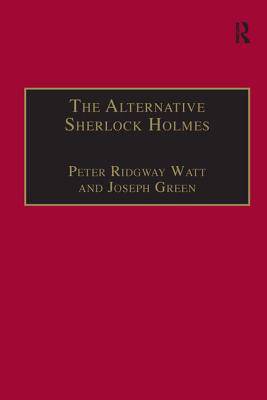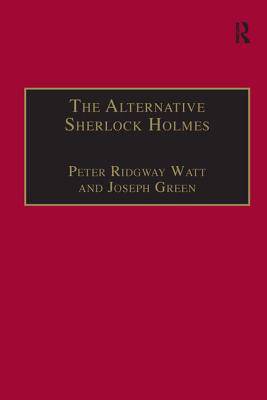
- Afhalen na 1 uur in een winkel met voorraad
- Gratis thuislevering in België vanaf € 30
- Ruim aanbod met 7 miljoen producten
- Afhalen na 1 uur in een winkel met voorraad
- Gratis thuislevering in België vanaf € 30
- Ruim aanbod met 7 miljoen producten
Zoeken
The Alternative Sherlock Holmes
Pastiches, Parodies and Copies
Peter Ridgway Watt, Joseph Green
Hardcover | Engels
€ 195,95
+ 391 punten
Omschrijving
Between 1887 and 1927, Sir Arthur Conan Doyle wrote sixty Sherlock Holmes stories, and his great Canon has become the most praised, most studied, and best-known chapter in the history of detective fiction. Over twenty thousand publications pertaining to the Sherlock Holmes phenomenon are known to have been published, most of them historical and critical studies. In addition, however, almost since the first stories appeared, such was their uniqueness and extraordinary attraction that other authors began writing stories based on or derived from them. A new genre had appeared: pastiches; parodies; burlesques; and stories that attempted to copy or rival the great detective himself. As the field widened, there was hardly a year in the twentieth century in which new short stories or novels did not appear. Many hundreds are now known to have been published, some of them written by authors well-known for their work in other literary fields. The non-canonical Sherlock Holmes literature not only constitutes a literary field of considerable historical interest, but includes many stories that are both enjoyable and fascinating in their own right. Although a large bibliography on these stories exists, and a few limited anthologies have been published, no attempt has previously been made to collect them all and discuss them comprehensively. The Alternative Sherlock Holmes does so: it provides a new and valuable approach to the Sherlock Holmes literature, as well as making available many works that have for years remained forgotten. Presented as an entertaining narrative, of interest to both the aficionado and the scholar, it provides full bibliographic data on virtually all the known stories in the field.
Specificaties
Betrokkenen
- Auteur(s):
- Uitgeverij:
Inhoud
- Aantal bladzijden:
- 368
- Taal:
- Engels
Eigenschappen
- Productcode (EAN):
- 9780754608820
- Verschijningsdatum:
- 19/06/2003
- Uitvoering:
- Hardcover
- Formaat:
- Genaaid
- Afmetingen:
- 155 mm x 236 mm
- Gewicht:
- 657 g

Alleen bij Standaard Boekhandel
+ 391 punten op je klantenkaart van Standaard Boekhandel
Beoordelingen
We publiceren alleen reviews die voldoen aan de voorwaarden voor reviews. Bekijk onze voorwaarden voor reviews.











